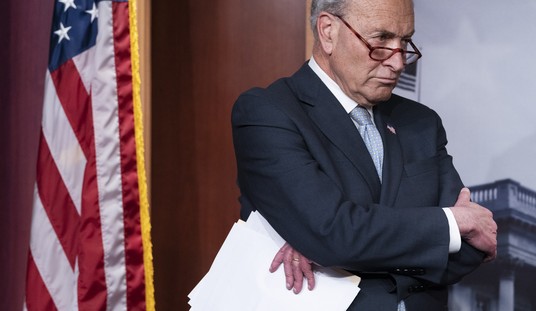Everyone who watches American politics, and who hasn't been living under a flat rock for the last few decades, is aware of that mysterious process by which elected officials in the House of Representatives and the Senate grow monstrously rich on their modest salaries.
It is (and let's say this quietly) called "graft."
A lot of this comes from members of Congress being made aware of information that could affect various publicly traded corporations, information that is not available to the general public. They then act on that information and score.
This is called "insider trading," and it's against the law, unless you're a member of Congress. But Senator Josh Hawley (R-MO) is aiming to fix that, and to that end he has reintroduced the delightfully-named Pelosi Act.
Hawley's ban would prohibit lawmakers and their spouses from holding, purchasing or selling stocks for the duration of the lawmaker's time in office. Lawmakers would be allowed to invest in diversified mutual funds, exchange-traded funds, or U.S. Treasury bonds while in office.
If passed, current lawmakers would have 180 days to comply with the legislation. Likewise, newly elected lawmakers must achieve compliance within 180 days of entering office.
Lawmakers who continue to make wrongful transactions under the law would be required to hand over any profits they made to the U.S. Treasury Department. The House or Senate ethics committees could also impose a fine on such lawmakers amounting to 10% of each wrongful transaction.
I have a question: Why not make the penalties align with the penalties the ordinary citizens would receive for this same crime? The civil penalties at the federal level are higher than this for the rest of us. 15 U.S. Code § 78u-1 - Civil penalties for insider trading states in part:
The amount of the penalty which may be imposed on the person who committed such violation shall be determined by the court in light of the facts and circumstances, but shall not exceed three times the profit gained or loss avoided as a result of such unlawful purchase, sale, or communication.
I wouldn't be averse to criminal penalties, either. The Securities and Exchange Commission (SEC) has, in such cases, managed to land judgments including serious monetary fines and even prison sentences.
Members of Congress should be subject to the same penalties as any ordinary citizen. Members of Congress should obey the same laws as any ordinary citizen, they should face the same penalties for breaking those laws as any ordinary citizen. Members of Congress should be subject to the same onerous and overbearing regulations as any ordinary citizen. That's what "equal treatment under the law" means.
That hasn't been the case for some time, but Senator Hawley's bill would at least address one aspect of this, even if it isn't as stringent as I'd like.
Sauce for the goose.
See Also: The Pelosis: Stock Traders Extraordinaire, or Just Crooks?
Congress members have routinely exempted themselves from laws and regulations that they impose on the rest of us. This has to stop. Senator Hawley's proposal is a good start - but it's only a start.
The Democrat Party has never been less popular as voters reject its globalist agenda.
Help us continue exposing Democrats' plans to lead America down a dangerous path. Join RedState VIP and use promo code FIGHT to get 60% off your membership.














Join the conversation as a VIP Member